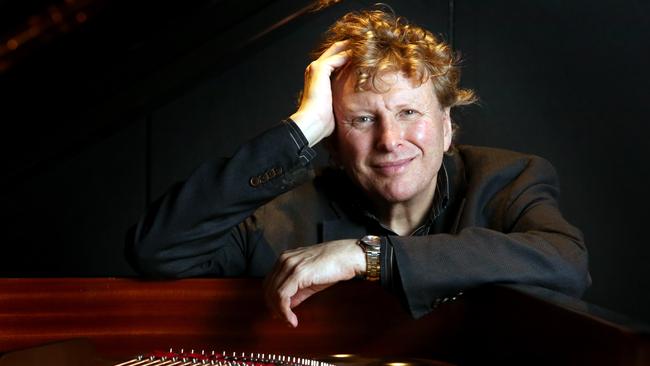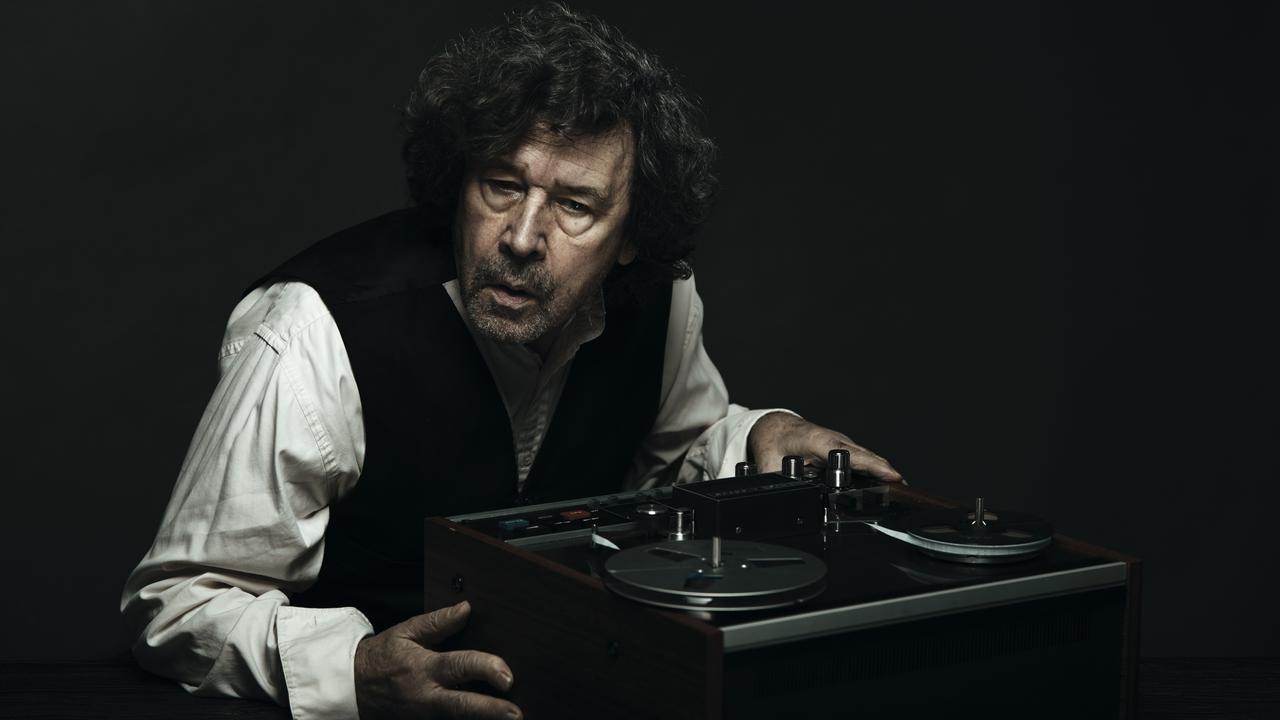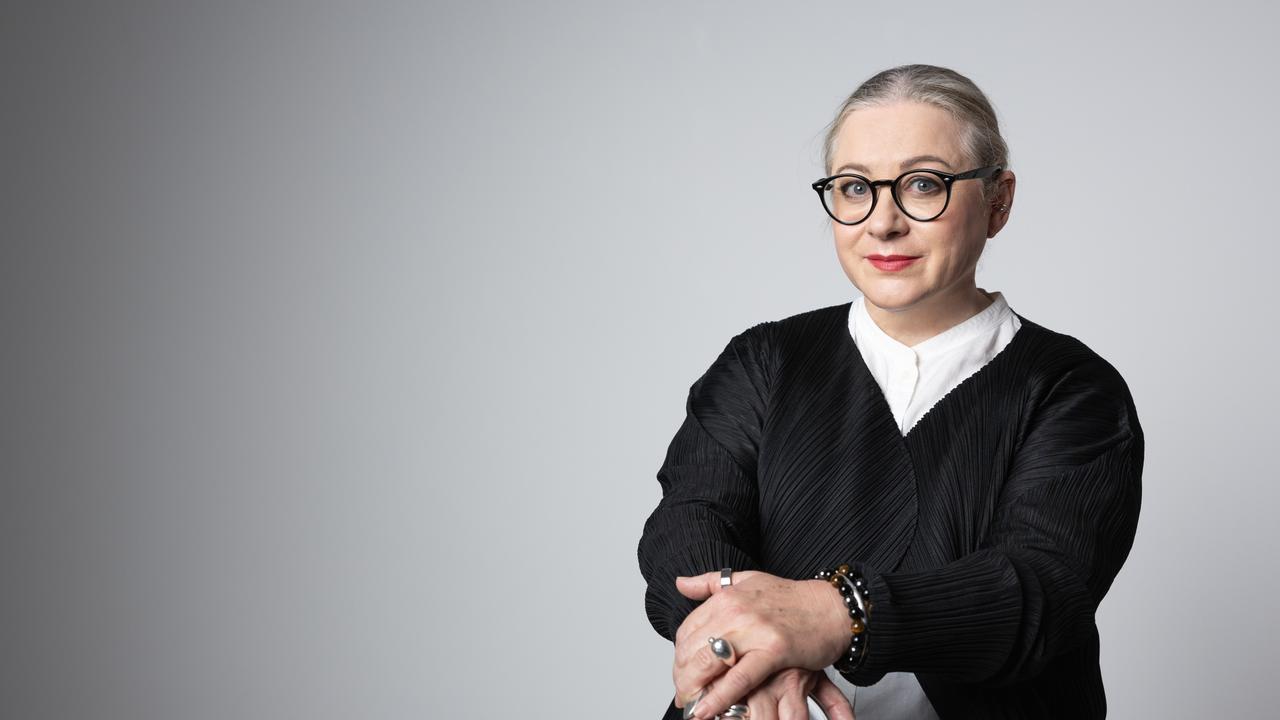Sydney piano competition’s Piers Lane seeks next superstar
The artistic director of Sydney’s piano competition is on a mission to find the instrument’s next global superstar.

Followers of the world’s great piano competitions know when and where to turn their ears. Every three years, it’s the Leeds in England. Every four, the Van Cliburn comes around in Texas. Music lovers anticipate these tournaments because several winners have gone on to stellar careers: the International Chopin Piano Competition in Warsaw, held every five years, helped bring to prominence stars such as Martha Argerich, Krystian Zimerman and Yundi Li.
Australian pianist Piers Lane is not the first to notice that our local contest, the Sydney International Piano Competition of Australia, does not have quite the same cachet.
“I’ve wondered over the years why it is that none of the Sydney winners have had really major international careers,” he says. “There aren’t the Radu Lupus, or Murray Perahias, Martha Argeriches or Vladimir Ashkenazys … Why haven’t our winners had that success? I think one of the reasons is that it hasn’t had enough global exposure. We have had big talents, but they haven’t been able to follow through, to show themselves wider as a result.”
Last year Lane was appointed SIPCA’s artistic director and he was determined to give the event a shake-out. Held every four years, recent SIPCAs have been collegial, friendly and musically stimulating — if lacking edge-of-the-seat excitement. Music competitions should never be blood sports but the stakes should be high and command serious attention.
This year’s event begins on Wednesday, when 32 competitors from across the world will gather in Sydney for more than two weeks of intense music-making. It starts with solo recitals by each of the competitors — this year in the beautiful acoustic of Verbrugghen Hall at the Sydney Conservatorium of Music — and ends with the concerto rounds at the Opera House, with the Sydney Symphony Orchestra.
Lane has updated the rules and changed the jury voting procedures. He has insisted on a greater variety of repertoire and pianos: an attempt to break out of the routine of Rachmaninov and Steinway. Not least, Lane has secured one of the great conductors, Valery Gergiev, as SIPCA’s artistic patron. The top placegetters win engagements with Gergiev at his Mariinsky International Piano Festival in St Petersburg.
“We thought that he would just agree to the laureates having a recital in the festival,” Lane says. “But he said, ‘No, don’t be stingy. I will give them concertos.’ He is incredibly generous.”
SIPCA was started in 1977 by Rex Hobcroft, then director of the Sydney Con, with lawyer Robert Tobias and Claire Dan, a Hungarian migrant and music lover (and ex-wife of transport magnate Peter Abeles) who provided the funds.
The competition came to be run as a slightly eccentric double act by Dan and long-time artistic director Warren Thomson. No one could question their dedication but the event needed fresh ideas. Dan died soon after the last competition in 2012 and Thomson died in 2015.
When Lane was appointed last year, his remit was to refresh the competition and boost its profile. Part of his job as artistic director is to select the competitors: a daunting task, given there were 283 applicants. Lane and his assistants finally settled on 32 competitors plus a reserve list. They are coming from all over: China, Russia and the US, but also Austria, Croatia, Hungary, Italy, Japan, Kazakhstan, South Korea, Sweden, Thailand, Ukraine and Vietnam. Five are Australian. Lane doesn’t believe in positive discrimination but he’s pleased there is a home team for the audience to follow.
“You are looking for people who are already authoritative players and artists in their own right, people who have something to say,” Lane says. “You take it for granted that they are going to have fantastic technique these days because so many of them have.”
He has changed the rules with the intention of making the contest challenging for competitors, interesting for the audience and more like a real-life concert career. The six rounds require entrants to prepare three solo recitals, a chamber recital (they may be asked to perform a sonata, with English violinist Tasmin Little, or a quintet with the Goldner String Quartet) and two concertos.
Competitors habitually choose bravura Russian concertos for the final round with orchestra. Lane has attempted to steer them towards greater variety and has offered 20 concertos from which to choose, including lesser-performed works by Hummel, Medtner and Australian composer Malcolm Williamson. Still, Lane says many have opted for the more familiar show stoppers — Prokofiev 3 and Rachmaninov 2 — if they make it through to the finals.
He also has introduced a new piano to the usual array of Kawai, Steinway and Yamaha concert grands. Fazioli is an Italian make played by artists such as Nikolai Demidenko and Angela Hewitt. Lane has determined that each competitor will play on at least two different pianos in the early rounds, and finalists will have played on all four by the competition’s end.
“Of course pianists are going to like one brand over another … the thing is that we are going to have four top-class instruments and in the real world pianists have to take what they are given,” he says. “You have to do your best, and if you’re an artist you will communicate through whatever instrument you have.”
Lane, who grew up in Brisbane, is uniquely qualified to be artistic director of SIPCA. In 1976, when he was 18, he took part in a competition organised by the Bartok Society of Australia that sent him to Budapest. Dan was one of the patrons. The next year, he entered in the first SIPCA — playing Rachmaninov 3 — and was named best Australian pianist.
Based in London, he has an international career as a soloist, specialising in lesser-known concertos: he recently gave the US premiere at Carnegie Hall of an 1826 concerto by Ferdinand Ries. As well as his concert engagements, Lane is a recording artist, broadcaster and artistic director of Townsville’s Australian Festival of Chamber Music. He also has appeared on competition juries, including SIPCA in 2004.
Lane has assembled a nine-member panel of jurors and has tried to avoid professional judges and teachers in favour of working concert pianists, such as Chinese pianist Sa Chen, Poland’s Ewa Kupiec and the Russian Demidenko. Another of the judges, Serbian pianist Mira Yevtich, was Lane’s introduction to Gergiev. Lane performed at the Mariinsky piano festival and had dinner with Gergiev, leading to the Russian maestro agreeing to be artistic patron of SIPCA.
As well as a concert date in St Petersburg, SIPCA’s top prize includes $50,000 (donated by the friends of the competition), engagements in Australia and Europe, a debut with the London Philharmonic Orchestra and a recording with Hyperion Records. The total prize pool amounts to almost $200,000 and performance opportunities for other placegetters.
“I think I’ve come up with a prize list that is more important than ever before in a way,” Lane says. “It’s more international and that’s partly to do with Gergiev being the patron, and giving the top three prizewinners concerto engagements in St Petersburg and, if he likes them, in Munich and London. That would be extraordinary. It is a major prize to win.”
Every note of the competition will be broadcast on ABC Classic FM with expert commentary. Lane is especially excited that the event will be live-streamed for the first time on the internet. He says SIPCA needs that real-time, global exposure if it is to be an international player.
Many in the music profession are dismissive of competitions, and regard the whole business of picking winners to be an anathema to the deep impulses of music and individual artistic expression. In the end, Lane says, a competition is about music and bringing talented young musicians before an audience.
“You can’t make a career for somebody but you can give them wonderful opportunities,” Lane says.
The Sydney International Piano Competition of Australia begins on Wednesday at the Sydney Conservatorium of Music and concludes on July 23 at the Sydney Opera House.


